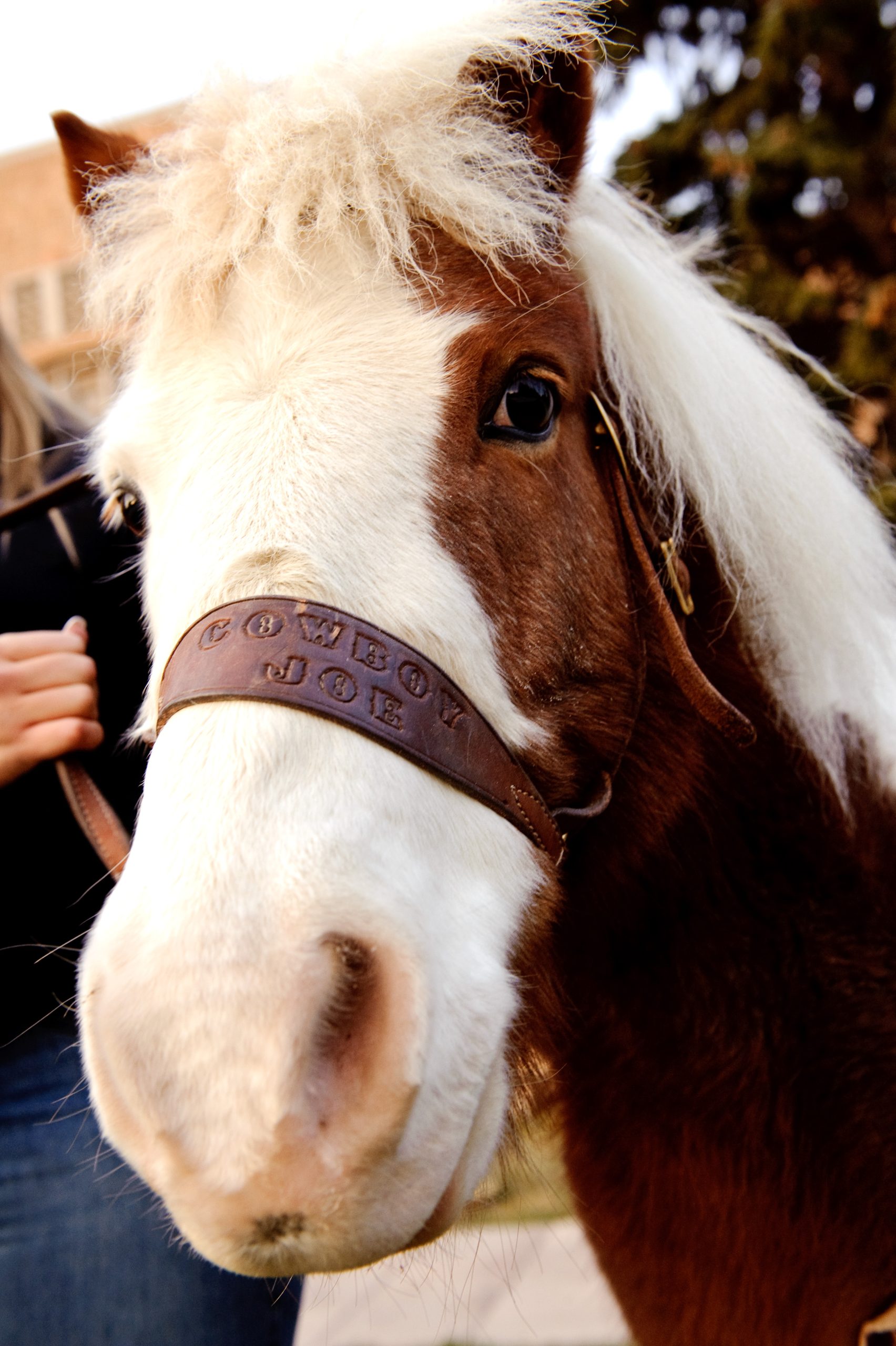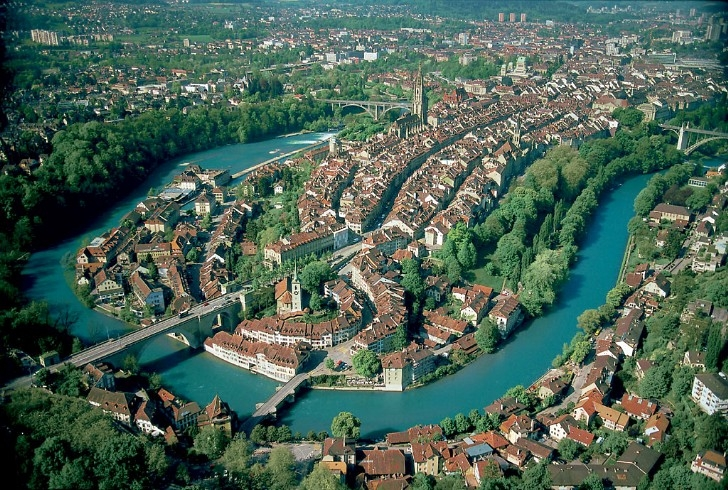2.1 Haus und Wohnung

Lektionsüberblick
Let’s start with where you are sitting: Can you name the kind of residence you are in? Or what part of town you are living in? That is what we are working on in this lesson. In the end, you will be able to 1) name living spaces and describe your living space now and in the past 2) name typical living areas and describe your living area now and in the past, and 3) say whether you live with other people and whether you lived with others in the past.
1) Wohngebäude – Wo wohnst du? Wo hast du gewohnt?
Now test your knowledge of these Wohngebäude-words with two rounds of memory. When you hear the audio clips, practice saying the words aloud!
How do houses compare in the US with German-speaking Europe? Let’s see!
Wer wohnt wo?

Sebi sagt: Ich wohne in einem kleinen Zimmer in einem Studierendenwohnheim.
Anja und Dirk sagen: Wir wohnen in einem Reihenhaus.
Andy und Christian sagen: Wir wohnen in einem großen Einfamilienhaus.
Silvia und Mario sagen: Wir wohnen in einem alten Bauernhaus.
Antonio und Barbara sagen: Wir wohnen in einer Altbauwohnung.
Ursula und Karl sagen: Wir wohnen in einer Wohnung in einem Hochhaus.
Cowboy Joe sagt: Ich wohne auf einer mittelgroßen Viehfarm.
We looked at the past tense in the last unit. Using Sebi as an example, let’s review how he says where he lives now and how he would say where he lived before.
 Sebi sagt: Ich wohne in einem kleinen Zimmer in einem Studierendenwohnheim. Vorher habe ich in einem Einfamilienhaus gewohnt.
Sebi sagt: Ich wohne in einem kleinen Zimmer in einem Studierendenwohnheim. Vorher habe ich in einem Einfamilienhaus gewohnt.
Jetzt bist du dran!
Wo wohnst du? Answer the question in your journal, modeling your answer on those above.
As you can see in some of the sentences above, the size of the home is mentioned (klein, mittelgroß, groß). Did you add a size to your answer?
Next, answer the question, Wo hast du gewohnt? Respond with the type of residence you used to live in. Your sentence will look like this: Vorher habe ich in [type of residence] gewohnt.
Now record yourself in your audio journal saying where you live and where you used to live. Be sure to listen to your recording and rerecord, if you are not satisfied.
2) Wohngegende
Wo wohnst du?
Do you remember our friends from #1? Let’s see how they say in what area of town they live:

Sebi sagt: Ich wohne in einem kleinen Zimmer in einem Studierendenwohnheim in der Stadt.
Anja und Dirk sagen: Wir wohnen in einem Reihenhaus in einem Dorf.
Andy und Christian sagen: Wir wohnen in einem großen Einfamilienhaus in der Stadt.
Silvia und Mario sagen: Wir wohnen in einem alten Bauernhaus auf dem Land.
Antonio und Barbara sagen: Wir wohnen in einer Altbauwohnung in der Stadt.
Ursula und Karl sagen: Wir wohnen in einer Wohnung in einem Hochhaus in der Innenstadt.
Cowboy Joe sagt: Ich wohne auf einer mittelgroßen Viehfarm auf dem Land.
Again, using Sebi as an example, let’s review how he says where he lives now and how he would say where he lived before.
 Sebi sagt: Ich wohne in einem kleinen Zimmer in einem Studierendenwohnheim in der Stadt. Vorher habe ich in einem Einfamilienhaus in einem Vorort gewohnt.
Sebi sagt: Ich wohne in einem kleinen Zimmer in einem Studierendenwohnheim in der Stadt. Vorher habe ich in einem Einfamilienhaus in einem Vorort gewohnt.
Jetzt bist du dran!
Wo wohnst du? Answer the question in your journal again, adding the residential area of your home. Model your answer on the statements above.
Next, answer the question, Wo hast du gewohnt? Respond with the type of residence and the area of town you used to live in. Your sentence will look like this: Vorher habe ich in [type of residence + residential area] gewohnt.
Now record yourself in your audio journal saying where you live. Be sure to listen to your recording and rerecord, if you are not satisfied.
im Blickpunkt

Bern ist die Hauptstadt der Schweiz. Aber mit knapp 138.000 Einwohnern ist sie nur die fünftgrößte Stadt. Sie liegt an der Aare. Bern ist als Stadt der Bären bekannt. Man kann Bären überall in der Stadt finden.
Bern is the capital of Switzerland. But with just under 138,000 inhabitants, it is only the fifth largest city. The river Aare flows through the city. Bern is known as the city of bears. You can find bears all over town.
3) (K)eine Mitwohner
Wohnst du alleine oder mit anderen Menschen zusammen? Most college students in the US do not live alone (alleine). Some may still live at home. Many live with other people. Here’s how to talk about the people you live with (or don’t).
Was ist eine WG?
How to talk about the people you live with:
| Ich wohne alleine. | I live alone. | |
| Ich wohne bei meiner Familie. | I live with my parents. | |
| Ich wohne im Studierendenwohnheim.* | I live in the dorms. | |
| Ich wohne in einer WG. | I live with other people/flatmates. | |
| Ich wohne mit Freund*innen in einer WG. | I live with my friends. (=we share the place) | |
| Ich wohne bei meinen Freund*innen. | I live with my friends. (=they are the owners) | |
| Ich wohne in einem Verbindungshaus.* |
I live in a fraternity/sorority house. | |
| Ich habe 2 Mitbewohner. | I have two flatmates/housemates. |
*Like in English, you do not mention any people in this instance, since it is implied that other students also live there.
Again, using Sebi as an example, let’s review how he says whether he lives alone now and who he lived with in the past.
 Sebi sagt: Ich wohne in einem Studierendenwohnheim (mit anderen Studenten). Vorher habe ich bei meiner Familie in einem Einfamilienhaus gewohnt.
Sebi sagt: Ich wohne in einem Studierendenwohnheim (mit anderen Studenten). Vorher habe ich bei meiner Familie in einem Einfamilienhaus gewohnt.
Jetzt bist du dran!
Wohnst du alleine oder mit anderen Menschen zusammen? Answer the question in your journal, modeling your answer on the statements above.
Next, answer the question, Mit wem hast du gewohnt? Respond with who you lived with in the past or whether you lived alone. Your sentence will look like this: Vorher habe ich [alleine, bei meiner Familie, etc.] gewohnt.
Now record yourself in your audio journal saying where you live. Be sure to listen to your recording and rerecord, if you are not satisfied.
Jetzt kombinieren!
In this lesson, you learned 1) name living spaces and describe your living space now and in the past 2) name typical living areas and describe your living area now and in the past, and 3) say whether you live with other people and whether you lived with others in the past.
Let’s see what this looks like combined:
- Markus sagt: Ich wohne in einer WG in einem kleinen Haus am Stadtrand. Ich habe 3 Mitbewohner. Vorher habe ich in einem Studierendenwohnheim in der Stadt gewohnt.
Wo wohnst du? Wohnst du alleine? Wo hast du gewohnt? Mit wem hast du gewohnt? Now combine all of these elements into two statements that describe your current living situation and your past living situation.
Then record yourself in your audio journal describing your current living situation and your past living situation. Be sure to listen to your recording and rerecord, if you are not satisfied.
Before you go: Check out this Swiss website, which discusses the pros and cons of a WG for students. Was denkst du darüber? (What do you think?)
*Check Canvas for assignments*

Media Attributions
- Wohngebäude cards and Wohngebäude memory are from Grenzenlos Deutsch and are licensed under a CC BY-NC-SA 4.0 license.
- Wer wohnt wo? images and questions are from Willkommen: Deutsch für alle and are licensed under a CC BY-NC-SA 4.0 license.
- Cowboy Joe © University of Wyoming, image used with permission from UW Trademark and Licensing.
- Bern facts adapted from Wikipedia, licensed under CC BY-NC-SA 4.0 International license.
- Wohngemeinschaft videos and questions are from Grenzenlos Deutsch and are licensed under a CC BY-NC-SA 4.0 license.
Media Attributions
- Private: 2030-2040 ch banner reduced size

